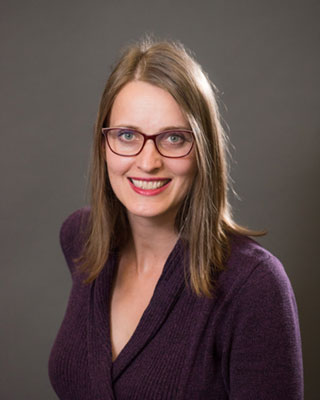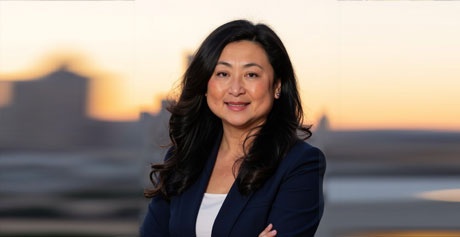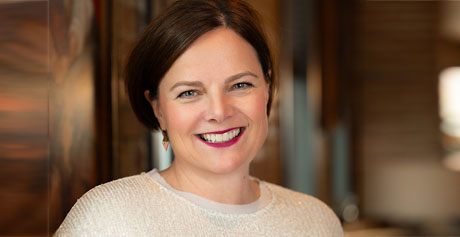Congratulations to Rosie Reid, 2019 California Teacher of the Year!
Rosie Reid Teaches teaches English to ninth through twelfth grade students at Northgate High School, Mount Diablo Unified School District in Walnut Creek, Contra Costa County.

RR: I teach 9-12 grade English and English Language Development at Northgate High School in Walnut Creek.
Q: Why did you want to become a teacher?
RR: When I was a little girl, I lived in rural Mendocino County. We didn’t have electricity and we didn’t have a lot of money. My parents were always very supportive of education but hadn’t gone to college and didn’t always know how to help me access all of the educational opportunities available to me. I had many educators who helped me beyond their job descriptions to be the first in my family to go to college. I know first-hand how education is the best means to provide opportunities for people to improve their circumstances. I have become a teacher to pay these opportunities forward.
Q: Share with us a typical day for you at school.
RR: As students come into my classroom, music is playing. When the bell rings, we turn off the music and students greet their seat partners with their special handshakes and answer some silly warm-up questions (e.g. which cartoon character do you most relate to?). We usually move into a short video or reading to get our ideas going and then class is spent doing a synthesis of writing, reading, and speaking about the issue of the day. Most topics are very contemporary social issues because these are very engaging, relevant, and important for us to think deeply about so we can be informed and thoughtful citizens.
Q: Describe your philosophy of teaching?
RR: I believe everything I’m doing as a teacher should be for, about, with, and by social justice. This means that as I design my lessons, I must always remember that I am teaching for a more just world. In order to do this, I must teach about the historical and modern injustices our society has faced and is facing. I must teach with culturally relevant and inclusive curriculum and I must frame it in a way that is respectful and thoughtful. And finally, I must teach by using participation structures and classroom procedures that promote equity and access to the conversation and the curriculum.
Q: How is education changing?
RR: One great way that education is changing is the focus on equity. Equity is the belief that we need to be making sure all students have the resources they need to be successful when they need them how they need them. Equity is definitely not treating all students the same, as we know students have very different backgrounds and have different needs. In my 17 years as a classroom teacher, I have seen more and more educators embracing this idea and this is very exciting to me.
Q: How do you support children with different learning styles and needs?
RR: Every lesson must have multiple entry points. Some students will respond well to visual stimuli, some to auditory, some to kinesthetic, some to writing, and so on. When possible, it is important to give students choice, which allows students to craft the assignment in a way that works for them.
Q: In what ways do you encourage creativity in your classroom?
RR: While we do a lot of writing, students also give speeches, write songs, record podcasts, and even make short movies. Giving students the opportunity to use their passions can help hook kids on learning.
Q: How do you use technology to enrich your lessons?
RR: I use technology in the delivery of my lessons most days, whether it’s a video, a clip from a podcast, a Kahout, or a series of images. Technology used appropriately brings lessons to life, as it connects us to the world.
Q: In your opinion, what are the biggest challenges that teachers face today?
RR: Everyone wants a world-class education but not everybody is willing to pay for it. California is ranked #41 nationally in per pupil spending. And the #1 thing we need to be spending money on is reducing class sizes. Every year without fail my smallest class has the fewest D’s and F’s and the most A’s. This is because students learn best when they can form relationships with their teachers, and this is very difficult to do when the class is overflowing.
Q: What’s one lesson you’ve learned in your career that you can share with our audience?
RR: Every child wants to be seen.
Q: Which woman inspires you and why?
RR: Alexandria Ocasio-Cortez because she is a fearless advocate for social justice, and she is never cowed by what her detractors are saying.
Q: What are some of the challenges you feel women face today?
RR: Less than half of American millennials identify as feminists. We need to raise the next generation of women to be impassioned supporters of the fight for gender equity, if not as leaders of the movement.
Q: Do you have any advice for young women that may want to pursue a career as an educator?
RR: Be a teacher! No better way to form the kind of community you want. Do you think we need more celebration of LGBTQ people in our society? Teach that. Want to uplift people of color? Teach it. Whatever teachers bring to our students they take with them into the world.
Five Things About Rosie Reid
1. What book are you currently reading?
A Manual for Cleaning Women, by Lucia Berlin
2. What were you like as a student?
Straight A’s, athletic, but a bit of a thorn in my teachers’ sides
3. Who’s been the biggest influence in your life?
My dad. We disagree a lot, but we both stand up for what we think is right and we won’t back down because of public perception.
4. What app can’t you live without?
Google Calendar
5. If you could talk to one famous person past or present, who would it be and why?
Toni Morrison, because I have never read another author who so fundamentally cuts to the heart of everything that is beautiful and problematic about humanity and society.

